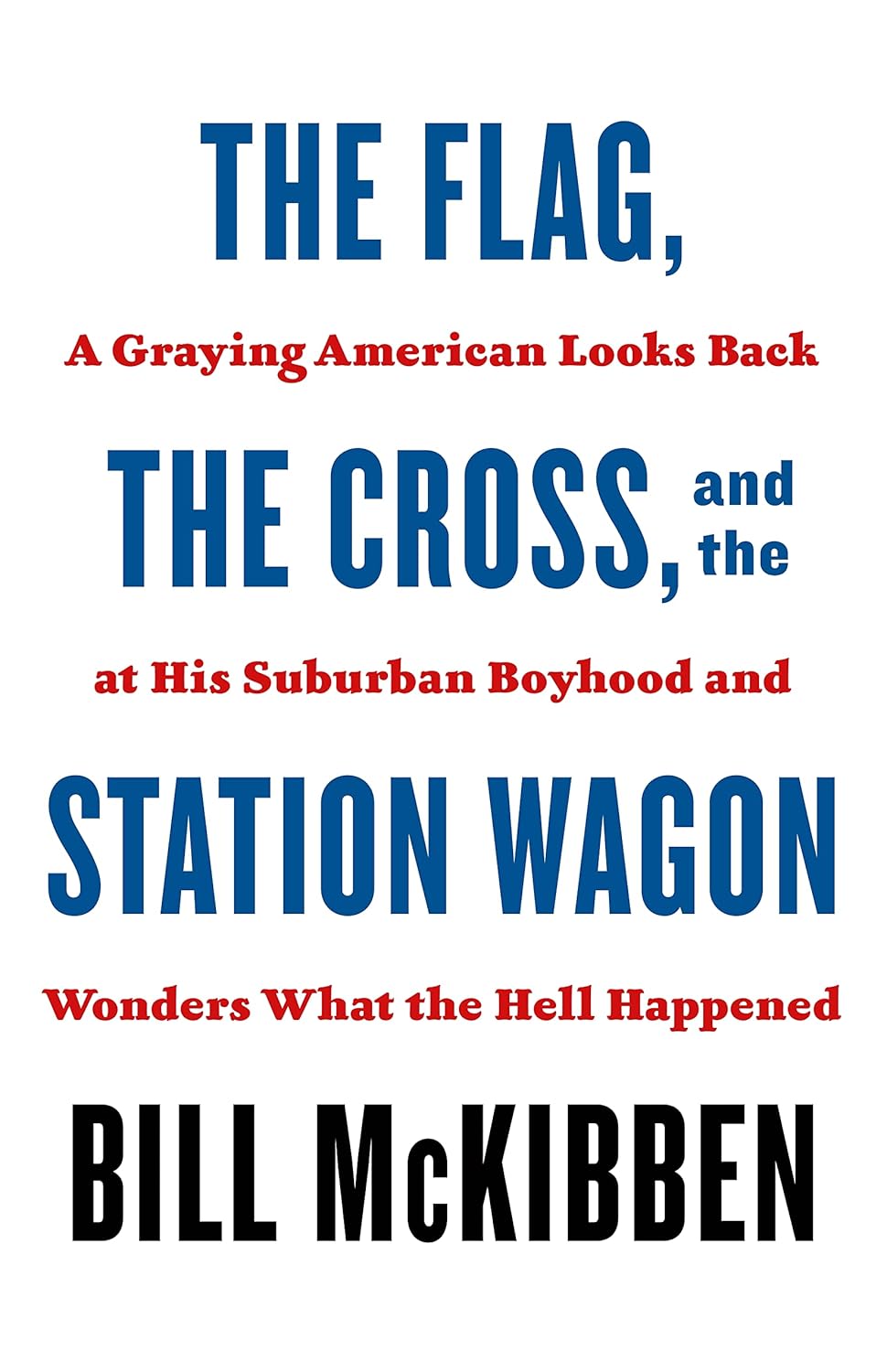
In this dark time for our country, we could use the progressive, unifying influence of the mainline Protestant churches, which have largely lost their membership and influence over the last 50 years.
Bill McKibben charts this decline as part of the collapse of the change movements of the 1960s in his recent, perfectly titled book, The Flag, the Cross, and the Station Wagon: A Graying American Looks Back at His Suburban Boyhood and Wonders What the Hell Happened.
McKibben helped create and guide the climate movement, as a persuasive writer and as an active leader, and he is a warm and generous guy who has supported me and my work, as well. His work is personal, insightful, and important.
No doubt McKibben’s younger admirers would be surprised by his concern for churches. Many young people on the left have no religious connection and stereotypically view church as the province of intolerant, hypocritical, right-wing TV preachers.
But Jesus Christ’s economic program was radically left. For a century, the mainline churches, to varying degrees, pursued a social justice agenda, for the abolition of slavery, the social safety net, and the Civil Rights movement.
McKibben recalls, as a child and teen in small-town New England, that his church helped the anti-war movement, stood for racial integration and equality, and advocated for the poor. Churches like his were a key part of an American consensus for incremental progressive change that lasted until 1980.
But most of these churches are empty now, or their few parishioners are old. We’re a couple of generations downstream from Sunday school being part most families’ lives.
An Episcopal priest advised us recently that for a funeral service, we would need a choir or a song leader. People under 40 don’t know how to sing in a group, he said, and the hymns would fall flat. Group singing is no longer part of most lives.
Singing together unifies—singers at your side feel like family. Conversation connects us, too. But now etiquette requires setting up a time for a phone call, and no one visits neighbors. In the street, passersby all have something in their ears.
Society has atomized, loneliness is epidemic, and church social gatherings have died out. I doubt lack of belief is the problem. People seem to believe anything these days. The problem is social.
Americans have lost faith in institutions. Often, the institutions were to blame for their own disrepute, including the Congress and U.S. Supreme Court. But how do we function without faith in the courts, police, government, news media, schools, banks, corporations, or medical system? (Here are the numbers.)
This malaise is deeper than politics. Our extreme nationalism and polarization are symptoms of wide-spread alienation and a hunger for belonging.
Human beings need to feel a part of something that is larger than ourselves. The ‘something,’ unfortunately, can be good or destructive. Past generations felt that belonging in church, and it was mostly good.
I don’t think Americans are going back to church, but we still need something good to share.
If you enjoy my newsletter, please share it.